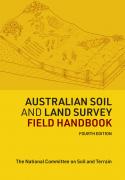With global revenue surpassing twenty-five billion dollars annually, organic agriculture is a highly visible and rapidly growing component of agricultural production. In Organic Agriculture: A Global Perspective, Paul Kristiansen, Acram Taji, and John Reganold, and their international group of contributors scientifically review key aspects of organic agriculture. At the intersection of research, education, and practice, the contributors look at the organic agricultural movement’s successes and limitations.
The first half of this book critically evaluates the agricultural production of both plants and livestock in organic farming systems. All major aspects of organic agriculture are explored, including historical background and underlying principles, soil-fertility management, crop and animal production, breeding strategies, and crop protection. This global and comprehensive overview also addresses the economic, social, and political aspects of organic farming. These include economics and marketing; standards and certification; environmental impacts and social responsibility; and research, education, and extension.
The book is a unique and timely science-based international work documenting current practices in organic agriculture and evaluating their strengths and weaknesses. For more than two decades, research into organic methods by mainstream scientists has generated a large body of information that can now be integrated and used for assessing the actual impacts of organic farming in a wide range of disciplines. The knowledge of selected international experts has been combined in one volume, providing a comprehensive review of organic farming globally.
Researchers, teachers, extensionists, students, primary producers and others around the world who are interested in sustainable agriculture will find this book to be a valuable and reliable resource.

















